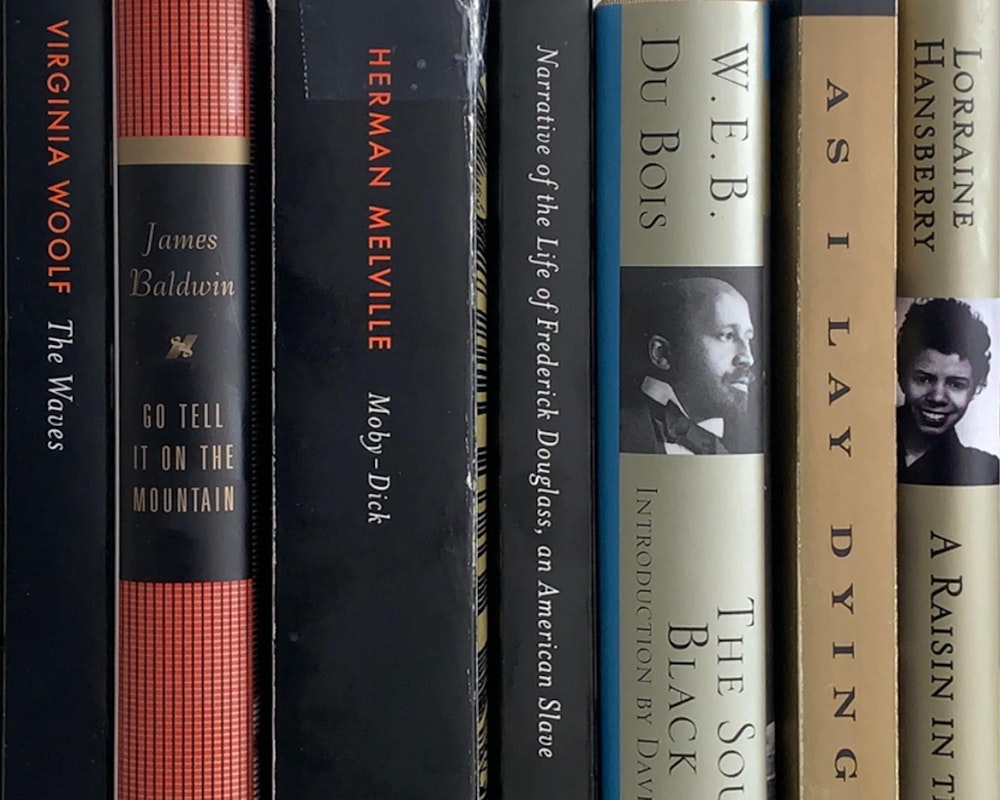
General Education and the Humanities
How four universities use common intellectual experiences and pathways to show students the power of the humanities
January 14, 2022
Join the project directors for a discussion of the Cornerstone: Living for Learning project at AAC&U’s 2022 Annual Meeting on Thursday, January 20, from 12:45 to 2:15 p.m.
The future of the humanities lies in general education.
General education is where students have the opportunity to cultivate the competencies and dispositions associated with humanistic inquiry, including the communication skills, analytical skills, and intellectual agility required to navigate a variety of perspectives and participate effectively in democracy. Courses that help students acquire these abilities should be the foundation of any education, regardless of academic majors or professional aspirations.
In September 2020, the Teagle Foundation and the National Endowment for the Humanities launched the Cornerstone: Learning for Living grant program to expose students to the power of the humanities as part of general education; strengthen the coherence of general education programs; increase teaching opportunities for humanities faculty; and help students link the humanities to their professional aspirations. The program model calls for each participating institution to provide (1) a gateway course that engages first-year students in a common intellectual experience with transformative texts and (2) a purposeful pathway in the humanities through which students can complete most or all of their general education requirements.
As of January 2022, more than thirty institutions are participating in the planning or implementation phases of the Cornerstone program. Below, we highlight four diverse institutions that are drawing on their institutional strengths and priorities to embed the humanities in general education.
The Examined Life at American University
Project leaders at American University have scaled up The Examined Life, a first-year seminar course that creates a common intellectual experience for students. Sections of the course share a common syllabus, developed collaboratively by faculty, that focuses on the same transformative texts. Readings include Plato’s Apology; Augustine’s Confessions; Mary Shelley’s Frankenstein; and Narrative of the Life of Frederick Douglass, an American Slave. By the end of the implementation phase of their project, sections of The Examined Life are expected to enroll one-third of American University’s incoming students.
Students who complete The Examined Life can take additional courses to receive a Lincoln Scholars certificate. The certificate curriculum combines the reading of humanities texts with experiences that help students connect the humanities to careers in government and politics.
Civic, Liberal, and Global Education at Stanford University
Stanford University has established a yearlong requirement for three Civic, Liberal, and Global Education courses to be completed by all incoming first-year students:
- Why College, taken in the fall quarter
- Citizenship in the 21st Century, taken in the winter quarter
- Global Perspectives, taken in the spring quarter
Sections of the fall and winter seminars are designed around common lists of readings—ranging from Plato’s Allegory of the Cave to Ta-Nehisi Coates’s Between the World and Me—that help students explore the purpose of a liberal education and the claim that only the “examined life” is worth living. Readings in the winter seminar, such as Rousseau’s The Social Contract, encourage students to reflect on the challenges of a fully participatory democracy. Faculty determine the common reading lists annually for the fall and winter seminars, and instructors are expected to draw at least 75 percent of their assigned readings from the lists. In the spring, students can choose one of six Global Perspectives courses that bring humanistic questions to bear on themes such as science, race, gender, medicine, and politics.
Stanford faculty are also devising curricular roadmaps that help students satisfy general education requirements, take courses steeped in the humanities, and connect their coursework to professional aspirations. With themes such as “liberal education and the engineer” and “global perspectives on science and technology,” these general education pathways are designed to incentivize students to pursue a humanities certificate or minor while ensuring that all students, regardless of major, have significant exposure to humanistic questions.
Introduction to the Liberal Arts atSUNY Onondaga Community College
SUNY Onondaga Community College (OCC) is scaling up Introduction to the Liberal Arts, a new student success course required for all incoming liberal arts students. The student success course orients new students to the institution and helps them cultivate the skills needed to be successful in college while also using core texts to create a common intellectual experience and a sense of belonging on campus. The syllabi for sections of the student success course draw from a common list of eighty core texts, ranging from Homer’s The Odyssey to Virginia Woolf’s To the Lighthouse, devised annually by faculty.
OCC is also launching an Enduring Questions pathway, which allows students to complete at least twelve credits of required general education courses that draw on core humanities texts. The common reading list for the student success course serves as the inspiration for the pathway curriculum.
Great Works at the University of Nevada–Las Vegas
In 2003, the University of Nevada–Las Vegas (UNLV) created a four-course sequence that leads to a Great Works Academic Certificate. For their Cornerstone project, UNLV is leveraging the certificate to create both a general education pathway and a minor steeped in the “great works.”
The pathway involves two additional humanities courses that extend beyond those offered in the certificate to meet general education requirements. The minor includes all of the courses in the pathway plus six credits of elective courses that emphasize transformative texts. The certificate, pathway, and minor are stackable and designed to allow students to meet most of their general education requirements through coursework in the humanities.
All of the campuses participating in theCornerstone: Learning for Living program are helping to revitalize the humanities in undergraduate education. Use our Cornerstone toolkit and join our free workshop series for more insights on how faculty leaders engage their colleagues, secure administrative and faculty buy-in, and attract students to courses that center the humanities in general education.
Photo courtesy of Loni Bordoloi Pazich.